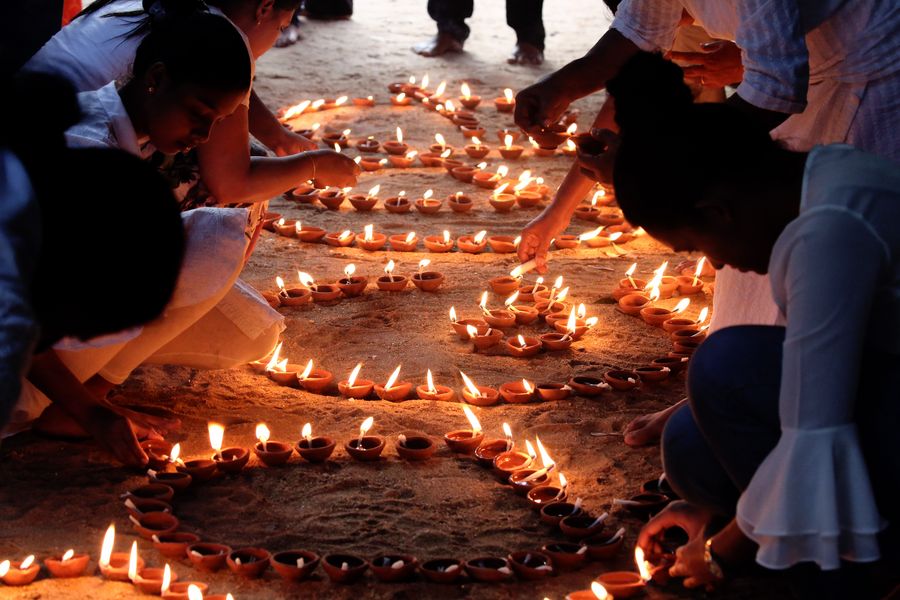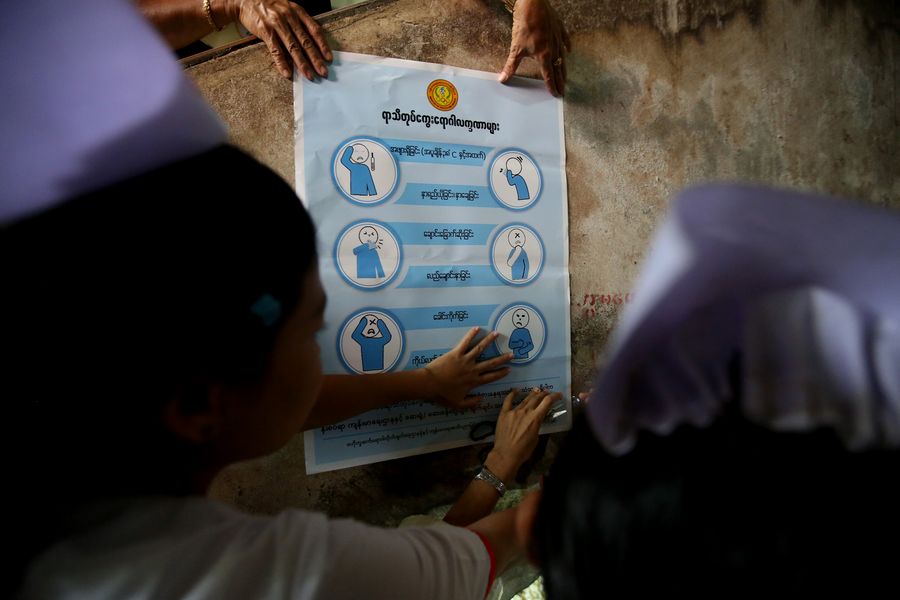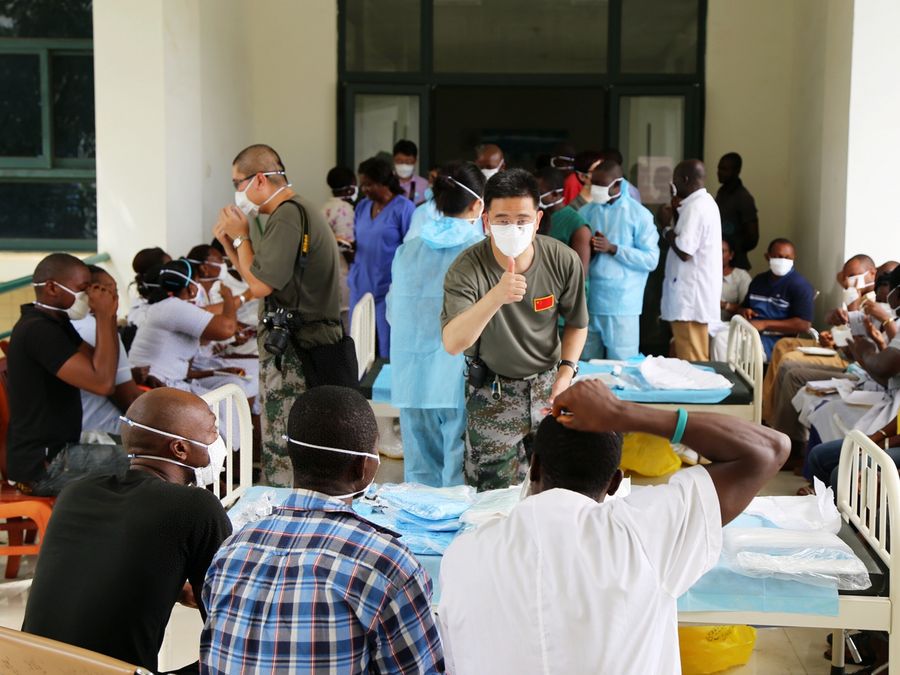
Local residents hold a vigil to express solidarity with China in the efforts to battle the novel coronavirus outbreak in Colombo, Sri Lanka, Feb. 1, 2020. (Photo by Ajith Perera/Xinhua)
In this age of globalization, major public health emergency always come as a tough test for humankind. Solving it requires wisdom, but the spirit of solidarity is more imperative. Those who intend to profit when others are suffering will only end up hurting themselves.
by Xinhua writer Guo Yage
BEIJING, Feb. 11 (Xinhua) -- At a time when more people worldwide are joining China's anti-epidemic battle, some U.S. politicians have chosen to stoke some unwarranted fear over the novel coronavirus.
Despite the World Health Organization (WHO) repeatedly advising against international trade and travel restrictions, Washington has issued a travel warning that raised China to the highest level and has temporarily banned the entry of all foreigners who have traveled to China in the past 14 days.
More shocking is U.S. Secretary of Commerce Wilbur Ross' insensitive remarks that the epidemic in China could help bring manufacturing jobs back to the United States. U.S. Senator Tom Cotton even suggested that China lied about the origin of the coronavirus without offering credible evidence.
While some in Washington try to sell a so-called "China threat," they seem to have forgotten their country's botched attempts to contain the H1N1 influenza, which ballooned into the world's first public health emergency of international concern declared by the WHO.
The flu broke out in the United States in March 2009. Yet it took Washington six months to declare a national emergency. By then the disease had already caused some 5,000 deaths globally.
According to the WHO, the pandemic later spread to 214 countries and regions, killing 18,400 people worldwide by August 2010.

Nurses post a notice on public awareness campaign against influenza A (H1N1) pdm09 at a market in Yangon, Myanmar, Aug. 8, 2019. Death toll of influenza A (H1N1) pdm09 rose to 90 in Myanmar as of Wednesday, according to the figures released by the Public Health Department under the Ministry of Health and Sports. (Xinhua/U Aung)
Washington at that time condemned a ban on U.S. pork by some countries because of the flu, saying that the restrictions are "without scientific justification" and "will likely result in serious trade disruptions without cause and result in significant economic damage."
Ten years on and Washington has a terrible bout of amnesia.
Furthermore, no one's buying Washington's bid to drum up global panic over the coronavirus.
Many U.S. media outlets and experts have come out against the travel bans, while a lot of Americans expressed their support for China by donating relief supplies and medical equipment.
Canadian Health Minister Patty Hajdu and British Ambassador to China Barbara Woodward said their countries will not impose travel restrictions on Chinese citizens.
Cambodian Prime Minister Samdech Techo Hun Sen visited Beijing amid the raging epidemic to show his support. China's other neighboring countries like South Korea and Japan have also extended their helping hands.

Chinese medical experts teach workers from Sierra Leone-China Friendship Hospital how to protect themselves against Ebola disease in Freetown, capital of Sierra Leone, Sept. 22, 2014. (Photo by Huang Xianbin/Xinhua)
One key reason they have joined China in the fight is that they understand well that nobody can stand alone in a global public health emergency in this increasingly interconnected world. And China itself has always demonstrated a strong sense of responsibility.
In 2014 when the Ebola epidemic broke out in West Africa, Chinese diplomats and medical professionals chose to stay and help.
In the ongoing battle against the novel coronavirus pneumonia, Beijing has waged an all-out campaign, including quarantining the Chinese city of Wuhan, building two makeshift hospitals in less than two weeks, and sharing the genetic sequence of the virus and other critical information with the world without delay.
Many of China's measures, hailed by WHO Director-General Tedros Adhanom Ghebreyesus as setting "a new standard" for outbreak response, go well beyond the requirements of the International Health Regulations.
At the same time, health professionals and researchers in other parts of the world are also working around the clock to conduct pathogen studies, test new drugs and develop vaccines.
In this age of globalization, major public health emergency always come as a tough test for humankind. Solving it requires wisdom, but the spirit of solidarity is more imperative. Those who intend to profit when others are suffering will only end up hurting themselves. ■



